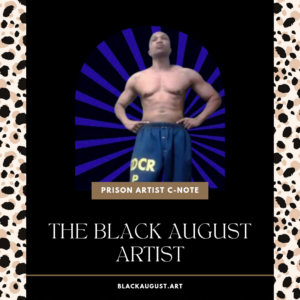By Bria Overs | Word In Black

(WIB) – April and Tyron Harper used their pain to start on the path of entrepreneurship.
The Baltimore-based couple discovered the power of self-care in managing chronic conditions — endometriosis and fibromyalgia, respectively. Now, they’re sharing their healing methods with others through their small business, Harp Vision.
Drawing on their professional experiences in finance, education, human services, and mental health, the duo crafted a product line of all-natural, plant-based soaps and candles, gourmet body scrubs, and premium bath teas designed to promote relaxation.
“A lot of people try our soaps for the first time, and they just fall in love with the names, the smells, the properties, and the infused minerals,” April says.
The challenges of starting a Black-owned business are many, from securing investment to supply chain kinks. But between 2017 and 2020, the number of Black-owned businesses increased by 13.64%, according to the Brookings Institute. And Harp Vision is one of thousands that started during the “Black-Owned Business Boom.”
And in the case of the Harpers, chronic pain is just another challenge for them to work through. But it’s worth it, the duo says. Pain won’t stop them from pursuing their entrepreneurship goals. Instead of viewing the hurdles and challenges as “suffering,” Tyron says they look at it more as “managing.”
“We’re managing [pain] just like we manage everything else, like our schedules, our business, and being able to take the necessary time to give ourselves time to decompress,” he says. “The stuff that is basically practicing what we preach.”
Taking Self-Care on the Road
When the couple started their business, they relied on marketing and pop-ups to get their products into customers’ hands. They still use these tools. However, they’re being more strategic, especially with their new venture in Baltimore’s historic and newly constructed Lexington Market.
Since the market’s re-opening earlier this year, April and Tyron made Harp Vision their full-time jobs. They’re completely invested in seeing the longevity and success of the business.
And it’s working. The couple says they’ve seen a growth in revenue with their sales doubling.
“We’re able to meet people in the city and just talk to them about self-care, their regimens, and basically educating them on the importance of pouring back into themselves. And then, having our products go on a plane and travel to places we can’t physically be is exciting.”APRIL HARPER
But Lexington Market is one step on their path. Their next move for The Harpers is taking their wellness products on the road with their “Wellness on Wheels” idea. In the next few months, they seek investment to fund their business and this next venture.
They’re also looking to build more connections within the hospitality industry, including growing their partnership with the Marriott SpringHill Suites in downtown Baltimore. They aim to have their soaps and other products in hotel suites, rooms, and bed and breakfasts.
“We set a 90-day goal to speak to different partners, and we just became a partner with Visit Baltimore that gave us a front seat to different hospitality managers,” April says. “We’ve been in touch with different hotels on how we can show up in their space and offer our natural products.”
Taking Harp Vision into the Future
Harp Vision accomplishes two things for April and Tyron.
They can leave a legacy of generational wealth through entrepreneurship and break generational curses.
Tyron doesn’t have much knowledge or memory of some of his family members. And he wants to change that for his children and future generations.
“I want my kids and their future kids to know us,” he says. “If someone comes [to visit], they can tell them who it is and the legacy they left for them — what we wanted to accomplish and how we wanted to change our community and the world.”
April and Tyron say that sharing their stories is an integral part of their business because customers can relate, which helps them build a strong connection with the community they want to serve.
They tap into that community, sharing their ideas, visions, and dreams, and it’s part of what’s made them successful. Their community believes in them and what they’re doing.
“I know that my purpose is what we’re doing now, and I didn’t understand why,” Tyron says. “I didn’t have a passion for soaps, body scrubs, or anything like that. But our pain — that created what we’re doing now, and that’s what my passion is. Trying to help other people manage pain.”





